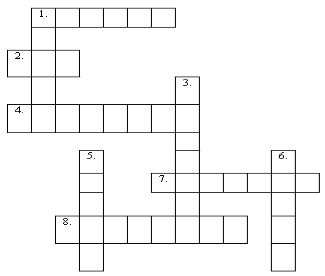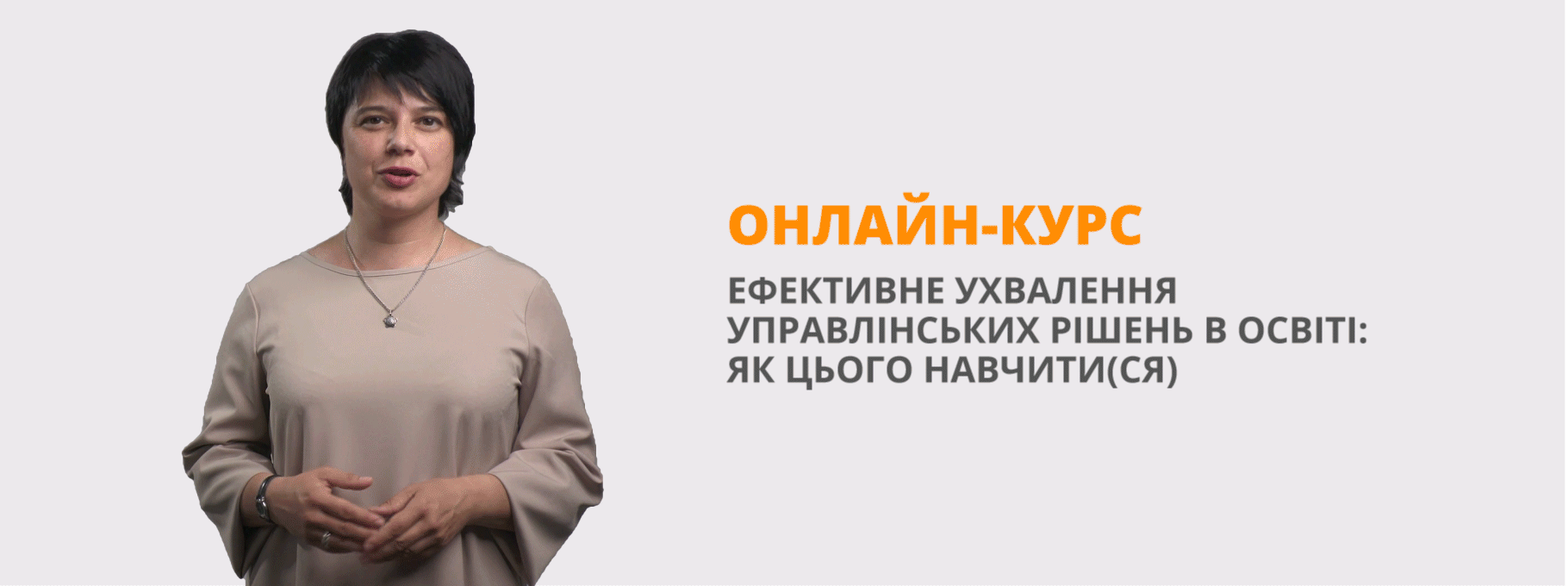урок "Музика у нашому житті"
Lesson Topic: Music in our life. Form: 8 Objectives: -to develop students’ reading, listening sub-skills on the topic; -to activate the topic- related lexis; -to encourage students to justify their opinions, to clear out additional information about their tastes in music; -to develop attentiveness and interest to the subject. Type of the lesson: lesson of development of speaking skills .
Materials: recordings with different pieces of music; a tape-recorder; posters; CDs; cards with crosswords.
The Procedure of the Lesson
I. Greetings.( 2 min.)
Hello everyone! How are you today? I hope, you are fine and will be active, energetic and supportive at the lesson for we are going to discuss music in our life. Today, we are more experienced and aware of various music styles, could you think and remind us areas the pop music includes?
II. Brainstorming. ( 3 min.)
(Students’ answers)
|
jazz, |
- techno, |
- rap music, |
|
rock, |
- reggae, |
- hip-hop music, |
|
country music, |
- western, |
- ets. |
|
soul, |
- blues, |
|
III. Follow up discussion: ( 7 min.) T.: Do you think music has a power? Ss’ possible answers: S1. - I think it’s almost impossible to escape from music, even if we want to. It sounds in
every high-street shop, hisses horribly from other people’s stereos on public transport and blasts out of open car windows. S2. - I agree with S1. More over, very few of us have any read idea of the effect music has on us. S3. – But in my opinion most people assume that musical tastes are subjective – that one persion will like hip-hop, while another prefers classical music.
S4. – You are right. In fact, recent research in America has shown that appreciation of music is not a matter of individual taste. Certain types of music will have a particular effect on our mind and bodies, whether we like it or not.
S5. – Oh, yes. For instance, classical music helps us to feel relaxed and peaceful, other types are stimulating to the brain, encouraging curiosity and alertness.
S6. – You see, while classical music promotes loving feelings, hard rock music is a good example of music that makes us feel hate, jealousy and violence.
S7. – I think the words of the songs relate to my world, to my hopes, dreams, joys and disappointments and I get tremendous kick listening to this kind of music. T.: (The words and expressions below are written on the blackboard). You see, friends, rock music as well as other kinds of pop music has its “good” and “bad” sides. And I’m pleased you tried to use in your speech new words and expressions:
|
- to escape from |
- violence |
|
- a high-street shop |
- jealousy |
|
- to blast out of |
- soothing music |
|
- individual taste |
- tranquillizes |
|
- a particular effect |
- to draw a way |
|
- to stimulate to |
- taped music |
|
- alertness |
- endure |
|
- to promote |
- tremendous kick |
V. Speaking. ( 7 min.)
T.: I asked you to find out the thoughts and expressions of famous people (composers, singers, musicians, journalists, reporters) connecting with music. What have you found? (Ss’ answers).
T.: Great job! You may agree or disagree with hat people who are involved in creating or advertising music said. Tastes differ!
V.Pre-listening. ( 7 min.) T.: - You often become great music fans. You may idealize “musical gods”, you try to copy their good and bad habits, their life-styles, their hair-cuts, you may think your idols are generous, ideal and successful in everything they do, they never make any mistake, they feel at home, at any stage. Please, listen to the text.
“A BAD DAY IN THE LIFE OF… RONAN KEATING”
This week singer Ronan Keating from the group “Boyzone” talks about a terrible experience that he just can’t forget. “Two years ago, we were playing a concert in London. When we decided to do one of our songs – “Believe in Me” without instruments. When I tried to sing I couldn’t remember any of the words. I kept talking to the fans while shouting to the rest of the band: “I can’t remember the words!” I was so upset that we all go up and walked off the stage I’ll never forget it. But I don’t think the fans realized. They thought it was part of the show. We came back after a few minutes and sang a different song. I remembered the words this time! I steel feel a bit nervous even now when I sing “Believe in Me”.
T.: Listen to the text again and choose the correct answers. (Ss listen for specific information).
1. “Boyzone” were doing a concert when they decided to: a) sing a new song;
b) sout at the fans;
c) sing a song quietly;
d) sing a song without musical instruments.
2. When Ronan forgot the words to “Believe in Me” he:
a) a went of the stage immediately;
b) talked to fans;
c) played the guitar instead;
d) asked the fans to sing.
3. Now, when “Boyzone” play “Believe in Me”, Ronan:
a) fills a bit worried;
b) always forget the words;
c) never does it without musical instrument;
d) always asks someone else to sing. (Ss check the answers with their partners, then – as a class).
T.: Well, but pop-singers are people and nobody is perfect.
VI. Discussion of the Home reading.( 10 min.)
“Music’s Surprising Power to Heal” Marianne Sterbely was lying on a hospital bad waiting for her operation. She was hooked up to a computer that monitored her heart rate and brain waves. She was also hooked up, by earphones, to a CD of Vivaldi’s The Four Seasons. During the operation, the surgical team listened to Mozart and Brahms from another CD player. “Music reduces staff tension in the operating theatre”, says Dr Clyde Nash, Marianne’s surgeon, “and also helps to relax the patient”. Marianne claims the music was much better than medication. This was her second operation and this time the music helped her to remain clam and she didn’t need as much sedation. After the operation she was able to manage without pain killers simply by listening to music. Nash in one of many doctors who are finding that music can help to heal the sick. How does it help?
When the body is stressed, our heart beats faster, and, we take in more air. Studies show that music can help us to reduce the effect of this by lowering our blood pressure and breathing rate. Music can also reduce pain by making our bodies produce endorphins (natural pain relievers). The benefits of music are not confined to people who are ill. Music can help us in our daily lives. For example, playing a favorite song before an important exam or big match can allow us to relax and forget our worries; in this way we can face difficult situation with a clam heart and a clear mind.
T.: Before exercises I advise you to listen to what Marianne did. (Record with “The Four Seasons” by Vivaldy). Do you believe in music’s power to heal? (Ss’ own answers).
a) Comprehension to the text: 1. Why does Dr. Nash use music during his operation? 2. In what way does music affect our bodies? 3. How has music helped Marianne Sterbely? 4. How can healthy people make use of music?
b) Complete the definition with words from the text with those on the cards.(distributed by the teacher). (Ss do this activity in pairs).
1. Connected up to-hooked up. 2. Regularly checked-monitored. 3. Feeling of nervousness-tension. 4. A person who performs operations-surgeon. 5. Medicine-medication. 6. Make somebody or something well-heal. 7. Limited (to one particular group)-confined on.
T.: Now you see, music really can help us in our daily lives. It allows us to relax and forget our worries.
Free Talk on the Topic
T.; I asked you to think about modern music, singers and musicians, groups and musical instruments and equipments. Would you be so kind to tell what you have known? (Ss’ own answers). T.; Thanks a lot. Now you know more about pop music.
VII. Do a crossword.( 5min.)
Now, let’s do a crossword. Please, complete it with the words from our lesson (distributes cards with crosswords to each student);
ACROSS: 1. Ronan Keatng’s job (6)
2. A person who likes a band very much (3)
4. Very bad (8).
7. A music show (7).
8. Become aware (8).
DOWN: 1.A place where people perform (5)
2. Worried or afraid (7)
3.Unhappy about something (5).
6. Another word for a “band” (5).
ANSWERS: 1. singer, 4. terrible, 8. realized, 2. fan, 7. concert,1. stage, 3. nervous, 5. upset, 6. group.

T.: Thank you o your voyage to the world of your favorite music and pop groups, your reports about different groups with recordings show your tastes, what kind of music you like. I’m glad your material helped us to know each other better.
VIII. The End of the Lesson. Summing up.( 2min.) .
T.: Our lesson is almost over. We can see that everybody likes music. Music helps us to see the beauty of our world and to become better. I thank you for your work at our lesson. Your marks are…
Homework.( 2min.) T.:.Write a composition “Music in My Life”. Think and tell of any situation in your life when music affected you, reflected on your own life experience.

про публікацію авторської розробки
Додати розробку
